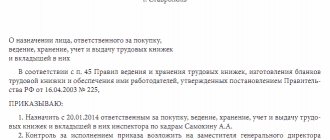Labor relations in the Russian Federation are regulated by a very extensive system of regulations.
The following large groups can be included:
- Regulatory and legal acts that are regulated by the Supreme Law of the country, the Constitutions of the constituent entities, the Labor Code of Russia, as well as the codes of individual constituent entities of the country.
- By-laws, such as Presidential Decrees and Government Decrees.
- Legislative acts of ministries and departments of the Russian Federation.
- Local legislative acts of local governments and municipalities.
- Local acts of organizations.
Laws as the main type of legal acts regulating labor relations
In the theory of state and law, it is customary to classify regulatory legal acts by legal force. In labor law they can be divided into the following groups:
- federal constitutional law;
- the federal law;
- law of the subject of the country.
Naturally, the Constitution of Russia and the Declaration of Rights and Freedoms of Man and Citizen stand apart. After all, as you know, these sources are fundamental for all branches of law, and they provide for the fundamental rights and freedoms of man and citizen in the field of labor relations.
Finished works on a similar topic
- Course work Legal acts regulating labor relations 430 rub.
- Abstract Legal acts regulating labor relations 260 rub.
- Test work Legal acts regulating labor relations 250 rub.
Receive completed work or advice from a specialist on your educational project Find out the cost
Note 1
An important function is performed by the Labor Code of Russia. It was adopted by the State Duma on December 21, 2001, and came into force in February 2002.
The following regulations are also important:
- Law “On Employment in the Russian Federation”;
- Law “On Collective Bargains and Agreements”;
- Law “On Associations of Employers” and others.
Subjects of the Russian Federation have the opportunity to issue legislative acts that will regulate labor relations only on the territory of the subject. In practice, it turns out that not every region of the country is active in the field of lawmaking, but there are also subjects on whose territory a local Labor Code is in force. As an example, we can point to the Republic of Bashkortostan.
Federal laws and regulations in the system of sources of labor law
The main Federal law regulating relations that constitute the subject of labor law, since February 1, 2002, is the Labor Code of the Russian Federation (LC RF). Other federal laws and regulations at the federal level cannot worsen the situation of workers in comparison with the norms of the Labor Code of the Russian Federation. Such restrictions should appear only in compliance with the requirements of Part 3 of Art. 55 of the Constitution of the Russian Federation and only after making appropriate changes to the Labor Code of the Russian Federation. Until amendments are made to the Labor Code of the Russian Federation, norms limiting the rights and freedoms guaranteed by it should not be applied.
The sources of labor law continue to be federal laws adopted before the entry into force of the Labor Code of the Russian Federation. However, their material expression is possible subject to the rule about the inadmissibility of worsening the situation of workers in comparison with the Labor Code of the Russian Federation.
The Law of the Russian Federation “On Employment of the Population in the Russian Federation” of April 19, 1991, as amended on April 20, 1996, with subsequent amendments and additions, continues to apply. The entry into force of the Labor Code of the Russian Federation did not affect the fate of this Law, since the Code does not have a section devoted to employment and employment. Therefore, the said Law continues to be in full force.
And after the adoption of the Labor Code of the Russian Federation, the Law of the Russian Federation “On Collective Bargains and Agreements” dated March 11, 1992, as amended on November 24, 1995, with subsequent amendments and additions, should be applied. The provisions of this Law should be applied to the extent that makes it possible to more fully protect the rights and legitimate interests of employees.
The sources of labor law include the Federal Law “On the Russian Tripartite Commission for the Regulation of Social and Labor Relations” of April 2, 1999. The entry into force of the Labor Code of the Russian Federation should not affect the application of this Law, since it complements the Labor Code of the Russian Federation in the part regulating the formation and activities of the Russian Tripartite Commission for the Regulation of Social and Labor Relations.
The Federal Law “On Trade Unions, Their Rights and Guarantees of Activities” of December 8, 1995, with subsequent amendments and additions, also remains among the sources of labor law. However, this Law will be applied with exceptions established by the Labor Code of the Russian Federation. These withdrawals affected primarily the rights of trade union workers.
The Federal Law “On the Fundamentals of Labor Safety in the Russian Federation” remains the source of labor law, which complements the provisions of the Labor Code of the Russian Federation.
The Federal Law “On the procedure for resolving collective labor disputes” of November 23, 1995 is also among the sources of labor law; it is applied taking into account the norms of the Labor Code of the Russian Federation devoted to the settlement of collective labor disputes.
The sources of labor law include the Federal Law “On compulsory social insurance against industrial accidents and occupational diseases” dated July 2, 1998 with subsequent amendments and additions; it complements the Labor Code of the Russian Federation in terms of compensation for harm caused to the life and health of workers in process of labor activity.
The Federal Law “On the Fundamentals of the Civil Service of the Russian Federation” of July 31, 1995 is also one of the sources of labor law. This Law supplements the Labor Code of the Russian Federation in terms of regulating the labor of persons in the public service.
The source of labor law is the Law of the Russian Federation “On State Guarantees and Compensations for Persons Working and Living in the Far North and Equivalent Areas” dated February 19, 1993 with subsequent amendments and additions. This Law should be applied to the extent that it provides for additional benefits compared to the Labor Code of the Russian Federation for persons working and living in the specified areas and localities.
Sources of labor law include certain provisions of the Federal Law “On Social Protection of Disabled Persons in the Russian Federation” dated November 24, 1995 with subsequent amendments and additions, the Federal Law “On Agricultural Cooperation” of December 8, 1995 with subsequent amendments and additions, Federal Law “On Education” of January 13, 1996 with subsequent amendments and additions, Federal Law “On the Legal Status of Foreign Citizens in the Russian Federation” of June 21, 2002, Federal Law “On the Protection of the Rights of Legal Entities and Individual Entrepreneurs during State Control” (supervision)" dated July 14, 2001.
This list of federal laws, the provisions of which relate to sources of labor law, is not exhaustive. In particular, the provisions of civil procedural legislation are used in resolving labor disputes, including by commissions for the consideration of labor disputes. In this case, they should be considered among the sources of labor law from the point of view of materialization in specific relations included in the subject of this branch.
The Law of the Russian Federation “On appealing to the court of actions and decisions that violate the rights and freedoms of citizens” of April 27, 1993 (with subsequent amendments and additions) is also used in the implementation of the labor rights of workers. Due to this, some of its norms can be recognized as sources of labor law when materialized into relations that form the subject of this industry.
The sources of labor law adopted at the federal level are decrees of the President of the Russian Federation. For example, Decree of the President of the Russian Federation “On bringing acts of the President of the RSFSR and the President of the Russian Federation into conformity with the Labor Code of the Russian Federation” dated October 5, 2002 N 1129. The list of decrees of the President of the Russian Federation aimed at regulating relations included in the subject of labor law is also impossible to determine in an exhaustive manner. However, when applying them, the rule regarding the inadmissibility of infringing on the rights and legitimate interests of employees guaranteed in the Labor Code of the Russian Federation and other federal laws must be observed.
At the federal level, resolutions of the Government of the Russian Federation are adopted aimed at regulating relations within the scope of labor law. The list of decrees of the Government of the Russian Federation aimed at regulating relations that constitute the subject of labor law also cannot be determined in an exhaustive manner. After all, certain norms of decrees of the Government of the Russian Federation, classified as sources of other branches of law, due to the requirements of Art. Art. 1, 11 of the Code of Civil Procedure can be applied in regulating labor relations by analogy. In this connection, they materialize as a source of labor law into specific relations included in the subject of this industry. When applying decrees of the Government of the Russian Federation in regulating labor relations, the rule must be observed that the situation of workers must not worsen in comparison with the Labor Code of the Russian Federation, federal laws and decrees of the President of the Russian Federation.
Sources of labor law at the federal level include regulatory legal acts of the Ministry of Labor and Social Development of the Russian Federation (Ministry of Labor of the Russian Federation), which are binding. Regulatory legal acts of the Ministry of Labor of the Russian Federation should not infringe on the rights of workers guaranteed in the Labor Code of the Russian Federation and other federal laws, decrees of the President of the Russian Federation and decrees of the Government of the Russian Federation. It is almost impossible to exhaustively list the regulatory legal acts of the Ministry of Labor of the Russian Federation aimed at regulating relations that constitute the subject of labor law. The activities of the Ministry of Labor of the Russian Federation in publishing and amending them do not stop. Therefore, at short intervals, both new acts appear and changes are made to existing acts aimed at regulating labor relations.
Sources of labor law include mandatory instructions from state control bodies over compliance with labor protection rules, in particular, Gosgortekhnadzor, Gosatomnadzor, Gossanepidemnadzor.
Federal ministries and departments also issue sectoral and intersectoral regulations aimed at regulating labor relations. The content of these acts should not contain provisions that infringe on the rights of employees in legislation of higher legal force.
The listed acts, which are sources of labor law, must comply with the Labor Code of the Russian Federation and other federal laws. By-laws at a lower level must correspond to by-laws that are higher in legal force. Regulatory legal acts of the federal level that conflict with the Labor Code of the Russian Federation and federal laws, regulatory legal acts of higher legal force can be appealed to the Supreme Court of the Russian Federation with a view to declaring them invalid. Recognition of a normative legal act as invalid means its loss of legal force from the moment the court decision on this enters into legal force. It is impossible not to notice that the rule-making of federal ministries and departments has additional departmental means of monitoring compliance with the issued regulations. These regulations do not always comply with the requirements of higher-level legislation. But from the point of view of materialization into specific relations, the norms of departmental rulemaking have priority over legislation of a higher legal force. The existing judicial control is designed to ensure the materialization in specific relations that constitute the subject of labor law, the requirements of federal regulatory legal acts that have greater legal force. This control also has its own characteristics, which are associated with the multiplicity of acts at the federal level aimed at regulating labor relations, and their application not only based on the legal force given to the act, but also from the point of view of reflecting the rights and interests of workers in its content. Therefore, a federal regulatory legal act that has less legal force, but provides additional benefits to employees in comparison with legislation of higher legal force, should not be declared invalid. An exception to this rule can only be cases where a federal government body issues an act in excess of its powers.
Regulations
Note 2
Regulatory Decrees of the President of Russia stand out for their supreme power among other acts. An example is the Presidential Decree “On Certain Measures to Ensure State Management of the Economy.” This Decree provides for certain requirements that apply to the content of employment contracts with senior management of federal government organizations.
Too lazy to read?
Ask a question to the experts and get an answer within 15 minutes!
Ask a Question
Decrees of the Government of the country, as well as decisions of ministries and departments, are issued on those issues that fall within the competence of these bodies. Resolutions of ministries, committees and departments, as a rule, apply only to employees of the relevant industry. However, the possibility of an intersectoral nature of such decisions is envisaged (for example, the Ministry of Health and the Federal Migration Service).
Within the scope of their powers, local government bodies and municipalities can adopt regulations that will contain provisions of labor law, but will be applied only in the territory of these bodies.
Concept of labor relations
The relationships that arise between an employer and an employee in the process of carrying out work activities are usually called labor relations. And they are implemented with the help of special social norms, that is, certain rules of behavior that are accepted in society. Among them are social and labor standards, which are necessary in order to streamline the behavior of both parties in the process of labor relations.
These standards contain information about those rules that are necessary to determine the mandatory behavior of the employer and employees. It is the implementation and use of these social and labor standards that is their implementation in practice. Acts containing labor law norms are primarily the Constitution of the Russian Federation and the Labor Code. It is the Labor Code of the Russian Federation that regulates all labor relations: those that are based on an agreement between both parties on the subject’s performance of labor activities for a set fee.
The Labor Code of the Russian Federation includes the following principles of relations in the sphere of labor:
- right to work;
- prohibition of any discrimination;
- prohibition on forced labor;
- state protection from unemployment;
- the right to decent working conditions;
- the right to timely and decent wages;
- right to promotion;
- the right to associate and participate in trade unions;
- right to compensation for damage.





